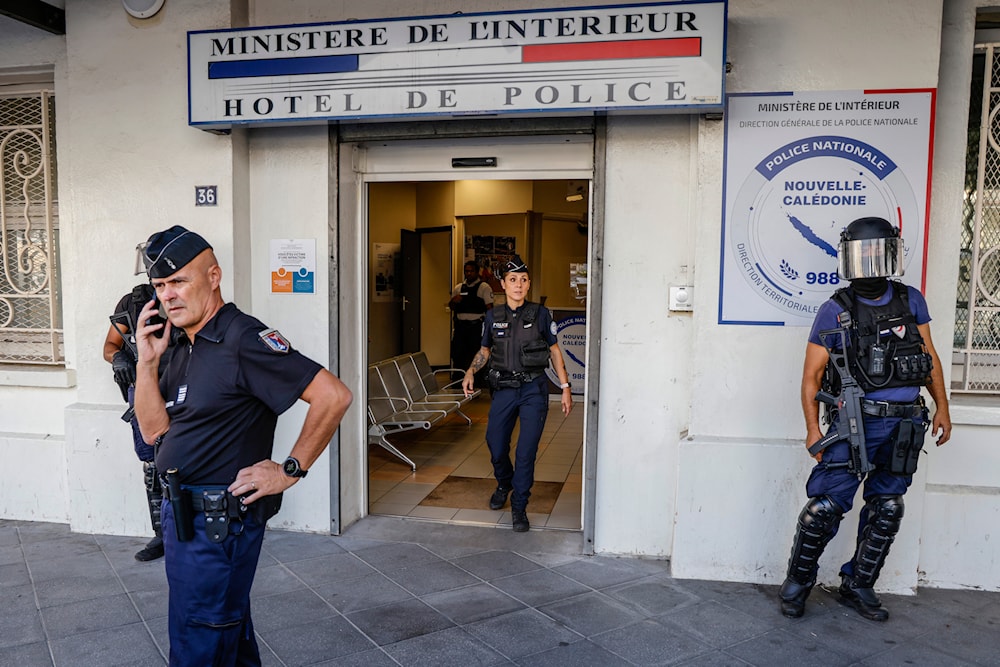New Caledonia prohibits gatherings, sets curfew amid French elections
A curfew that has been in place at night since the unrest began on the island back in May will be prolonged until July 15, along with a prohibition on the sale of firearms and alcohol.
-

Police wait for the arrival of French President Emmanuel Macron at the central police station in Noumea, New Caledonia, Thursday, May 23, 2024. (AP)
During the second round of France's parliamentary elections this weekend, gatherings are prohibited from Saturday morning until Monday night in the French Pacific region of New Caledonia, as announced by the High Commission, which represents the French state in the archipelago.
"A suitable security presence, including 3,500 police officers and gendarmes, will be put in place on Sunday... to guarantee the smooth running of voting operations," it said in a statement.
A curfew that has been in place at night since the unrest began on the island back in May will be prolonged until July 15 along with a prohibition on the sale of firearms and alcohol.
"In recent days, public order has improved thanks notably to the efficiency of reinforced security measures," it added, noting, "But there has been some damage to public infrastructure by rioters, including some schools."
Read next: Macron appeals to New Caledonia residents to lift roadblocks
AFP reporters revealed that in Dumbea, north of the capital Noumea, a primary school was set on fire on Thursday night.
Christophe Tein, an Indigenous Kanak pro-independence activist, declared on Monday from a French prison that he saw himself as a "political prisoner".
Tein is being investigated by the authorities on accusations of conspiring to commit attempted murder and other offenses which his CCAT pro-independence group denies.
Last month, the territory experienced a fresh wave of unrest following the transfer of seven independence activists, associated with a group accused of inciting deadly riots in the territory last month, to mainland France for pre-trial detention, according to a local prosecutor.
New Caledonia, with a population of about 270,000, has been rocked by unrest since May 13, sparked by French plans to impose new rules that would give tens of thousands of non-indigenous residents voting rights.
The Indigenous Kanaks of the archipelago feared that the move would dilute their vote, undermining their hopes of ultimately achieving independence. The violence led to nine deaths, including two police officers, and caused widespread damage to businesses, shops, and homes.

 2 Min Read
2 Min Read








